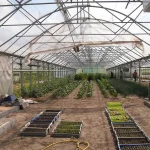This post may contain affiliate links. If you buy something from one of our links we may earn a commission. Thanks
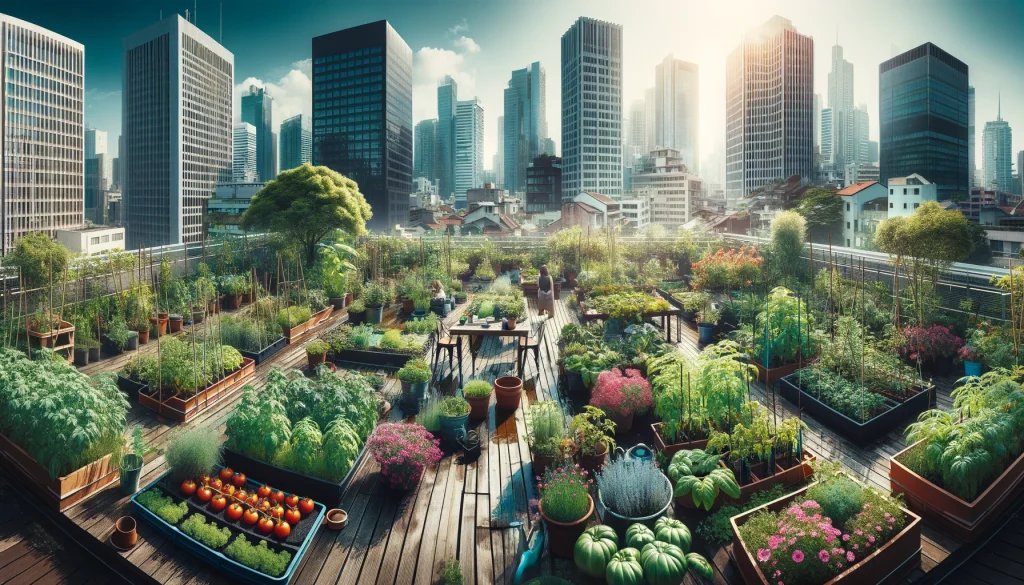
Urban gardening isn’t just a trend; it’s a revolution blooming in concrete jungles around the world.
If you’ve ever wondered about the perks of swapping car fumes for plant blooms right in the heart of the city, then stay tuned!
We’re diving deep into the myriad of urban gardening benefits that are rejuvenating our urban environments.
Urban Gardening Benefits Key Takeaways:
- Urban Gardening Benefits include improving air quality, enhancing food security by allowing people to grow their own produce
- It creates green spaces that enhance mental health, and foster community ties through shared garden projects.
Introduction to Urban Gardening
Howdy everyone! Let’s dig into the roots of urban gardening and why it’s sprouting up in cityscapes across the globe.
Urban gardening is more than just a way to brighten up our concrete jungles; it’s a movement toward sustainability right in the heart of our bustling cities.
Whether it’s a small planter on a balcony or a full-blown rooftop garden, these green spaces are transforming the way we live and interact with our environment.
What is Urban Gardening?
Urban gardening is the practice of cultivating plants within an urban environment.
This can include growing herbs, vegetables, and flowers in spaces like rooftops, balconies, or even along sidewalks—anywhere a little green can go a long way.
It’s not just about beautifying the city (although that’s a great perk!); it’s about making urban spaces more livable and sustainable.
Urban gardens, also known as city gardens or urban agriculture, refer to the cultivation of plants and sometimes animals within urban areas.[1] These gardens can take various forms and serve multiple purposes, from providing fresh produce for local communities to promoting environmental sustainability and fostering community engagement. https://en.wikipedia.org/wiki/Urban_gardening
Why Urban Gardening?
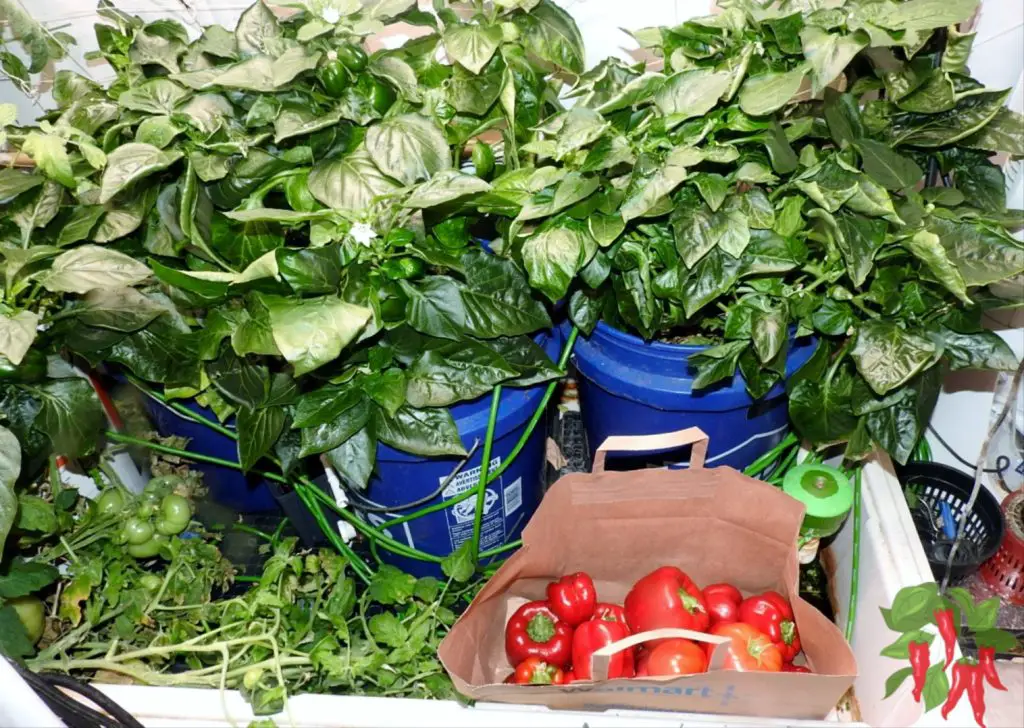
In today’s fast-paced urban life, green spaces are more than just a luxury; they’re a necessity for mental health and ecological balance. So why do we garden?
Urban gardens help reduce our carbon footprint, cool down our cities, and even improve air quality.
Plus, they provide fresh produce right at our doorstep—how’s that for cutting down food miles?
As we dive deeper into the benefits and challenges of urban gardening in this post, keep in mind that every little plant counts.
Whether you’re a seasoned gardener or just starting out, urban gardening offers a path to a greener, healthier urban life.
So, roll up your sleeves, because we’re about to get our hands dirty with some real green thumb action!
Core Benefits of Urban Gardening
Today, we’re diving into the lush world of urban gardening and exploring the incredible benefits it brings to our city lives.
Whether it’s a row of fresh herbs on a windowsill or a full-blown community garden, these green spaces are not just about adding splashes of color; they’re powerhouses of sustainability.
From boosting food security and cutting costs to enhancing our urban environments and knitting communities closer together, urban gardening offers a basketful of rewards.
Join me as we break down these benefits and see how turning our thumbs green can lead to healthier, happier urban living. Let’s get growing!
Food Security and Nutrition
Well folks, urban gardening is a real game changer when it comes to food security and nutrition.
Imagine stepping out to your balcony or rooftop and plucking fresh veggies right off the vine!
Urban gardens allow us to grow our own organic produce, significantly reducing our reliance on store-bought foods, which often travel long distances and lose nutrients along the way.
Not only does this ensure we have access to fresh and nutritious food, but it also promotes a healthier diet, right from our doorstep.
Economic Advantages
Now, let’s talk money. Urban gardening can actually be pretty kind on your wallet. Growing your own food can drastically cut grocery bills, especially if you’re cultivating pricey organic produce.
But that’s not all. For the entrepreneurial spirits out there, urban gardening opens up opportunities for small-scale commercial ventures.
From selling surplus produce at local farmers’ markets to starting a garden design business, the possibilities to turn a green thumb into green cash are endless.
Environmental Impact
If you’re looking for a way to make a positive impact on our planet, urban gardening is the way to go.
These green spaces do wonders for the environment by reducing the carbon footprint associated with transporting food.
They also improve urban air quality by increasing oxygen levels and trapping pollutants. Plants are nature’s air purifiers, after all.
Plus, they help mitigate the urban heat island effect, making our cities cooler and more pleasant to live in.
Community and Social Well-being
Last but definitely not least, urban gardens are incredible social hubs that strengthen community ties.
They provide a space for neighbors to connect and collaborate, fostering a sense of community and mutual responsibility.
Community gardens can become centers for education and sharing, where people of all ages come together to learn about gardening and sustainability.
These shared spaces not only promote physical health but also enhance social well-being by creating bonds among residents.
So there you have it, my gardening friends—urban gardening isn’t just about sprucing up the city.
It’s about feeding, enriching, cooling, and connecting our urban communities in sustainable and impactful ways.
Whether you’ve got a tiny window box or a sprawling rooftop, every plant you grow brings a host of benefits to you and your city. Happy gardening, and remember, keep it green!
Unique Challenges in Urban Gardening
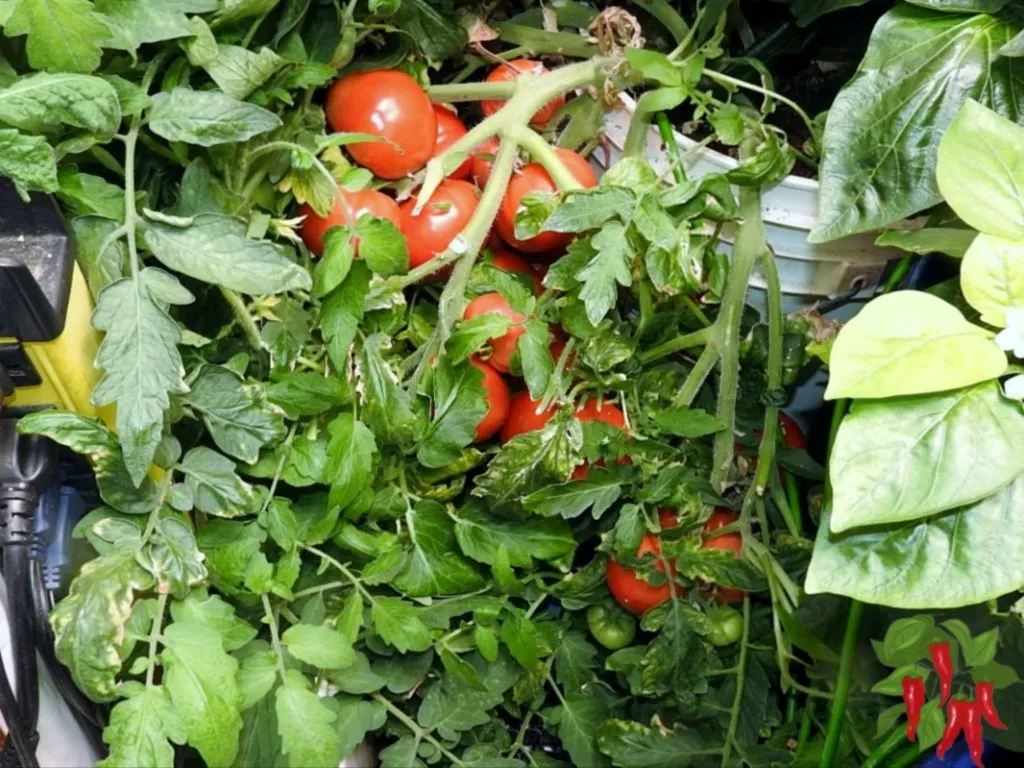
While urban gardening sprouts numerous benefits, it’s not without its share of challenges.
Limited space, soil contamination, and the necessity for creative growing methods can make city gardening a real puzzle.
But with a bit of innovation, these hurdles can be overcome. Let’s explore these unique challenges and the ingenious ways urban gardeners are thriving.
Limited Space
-
Creative Solutions:
- Container Gardening: Utilize pots, buckets, and window boxes to grow a variety of plants in small spaces like balconies or patios.
- Vertical Gardening: Employ trellises, wall planters, and hanging baskets to take advantage of vertical space, increasing your growing area without needing more ground space.
Soil Contamination
-
Safe Growing Practices:
- Raised Beds: Build raised garden beds filled with clean topsoil and compost to avoid the contaminated urban soil.
- Testing and Amendments: Test soil for contaminants like lead or heavy metals. Use amendments to bind contaminants or opt for soil replacement where necessary.
Adapting Gardening Methods
-
Innovative Techniques:
- Hydroponics: Embrace soil-less gardening methods which allow growing plants in nutrient-rich water solutions, perfect for indoor environments.
- Aquaponics: Combine fish farming with plant cultivation, where fish waste provides nutrients for plants, and plants help filter and clean the water for fish.
Navigating these challenges can turn urban gardening from a daunting task into a rewarding endeavor, ensuring that even in the heart of the city, you can grow lush, productive, and safe gardens.
Let’s keep pushing the green envelope, turning every little nook and cranny into a vibrant plant paradise!
Innovative Practices in Urban Gardening
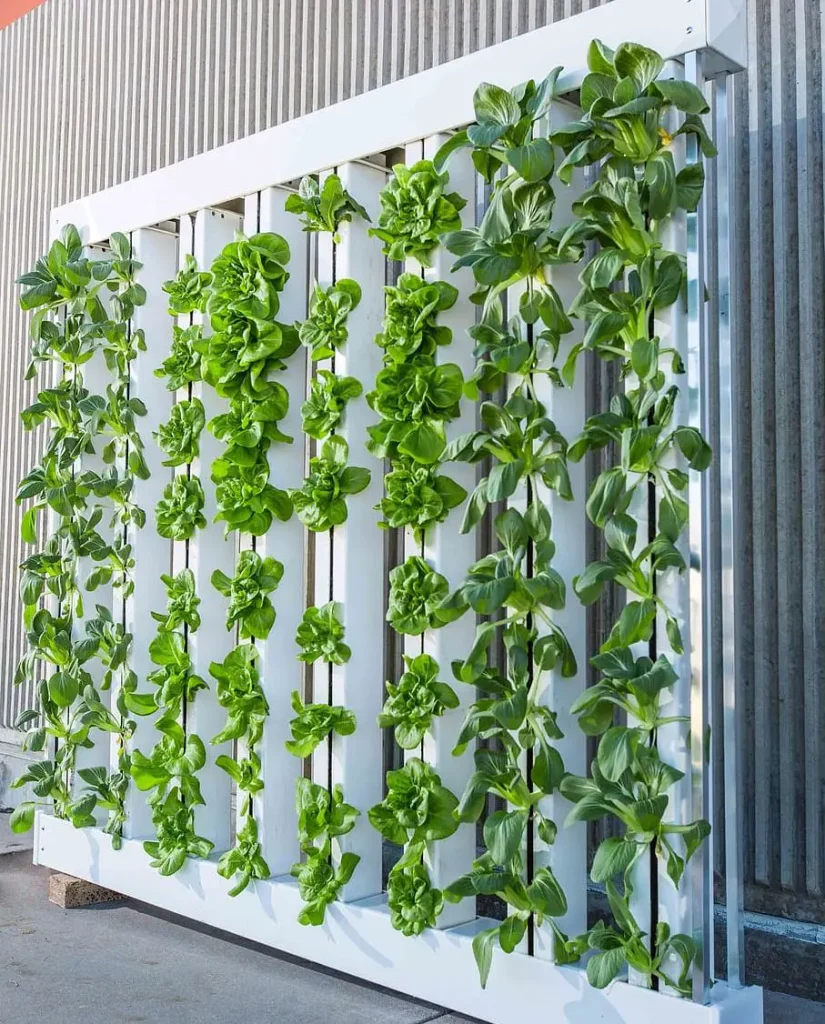
As we navigate the concrete jungle, innovative practices in urban gardening are making it easier and more sustainable to maintain lush gardens in tight spaces.
From embracing age-old techniques like composting to harnessing modern technology with hydroponics, urban gardeners are finding dynamic ways to cultivate greenery.
Let’s dig into some of these groundbreaking methods that are transforming city gardening.
Sustainable Practices
-
Eco-friendly Techniques:
- Composting: Turn kitchen scraps and yard waste into gold by composting, which enriches the soil and reduces the need for chemical fertilizers.
- Recycled Materials: Use repurposed containers, pallets, and other materials to create planters and garden beds, reducing waste and cost.
- Water Conservation: Implement drip irrigation and rainwater harvesting to make every drop count, essential in urban areas where water might be scarce.
Technological Advances
-
Cutting-edge Solutions:
- Hydroponics: This soil-less gardening method uses nutrient-rich water to grow plants faster and more efficiently, perfect for indoor environments.
- Aquaponics: A step further, aquaponics combines raising fish with growing plants, where the fish waste nourishes the plants and the plants clean the water for the fish, creating a sustainable closed-loop system.
These innovative practices are not just about making gardening possible in urban settings; they’re about revolutionizing it to be more productive, sustainable, and rewarding.
So, whether you’re a seasoned urban gardener or just starting out, these techniques can help you grow more with less, ensuring your gardening efforts are as fruitful as they are fulfilling.
Let’s keep innovating and growing our way to greener cities!
Policy and Planning for Urban Gardening
As we sow the seeds in our urban gardens, it’s crucial to recognize the role that policy and planning play in nurturing these green spaces.
Effective urban gardening isn’t just about planting seeds; it’s about cultivating supportive policies that allow these initiatives to flourish.
Let’s dig into the necessary policies that can help integrate green spaces into our city landscapes.
Supportive Policies
-
Encouraging Community Gardens:
- Land Access: Advocate for policies that allocate land for community gardens, especially in underserved areas to promote equitable access to green spaces.
- Funding and Resources: Support should be available in the form of grants, tools, and educational programs to empower community members to start and maintain gardens.
Integration into City Planning
-
Green Space Integration:
- Urban Design: Urban planners should incorporate green spaces into new developments and redevelopments, ensuring that every neighborhood has access to nature.
- Zoning Laws: Modify zoning laws to allow for more flexible use of vacant lots and rooftops for gardening purposes, reducing barriers for urban garden projects.
By implementing these policies, cities can enhance their livability, sustainability, and community resilience.
Supporting urban gardening through thoughtful policy and planning not only beautifies the city but also strengthens the community, promoting a healthier, more sustainable urban environment.
Let’s champion these changes and watch our urban gardens grow!
Future Perspectives
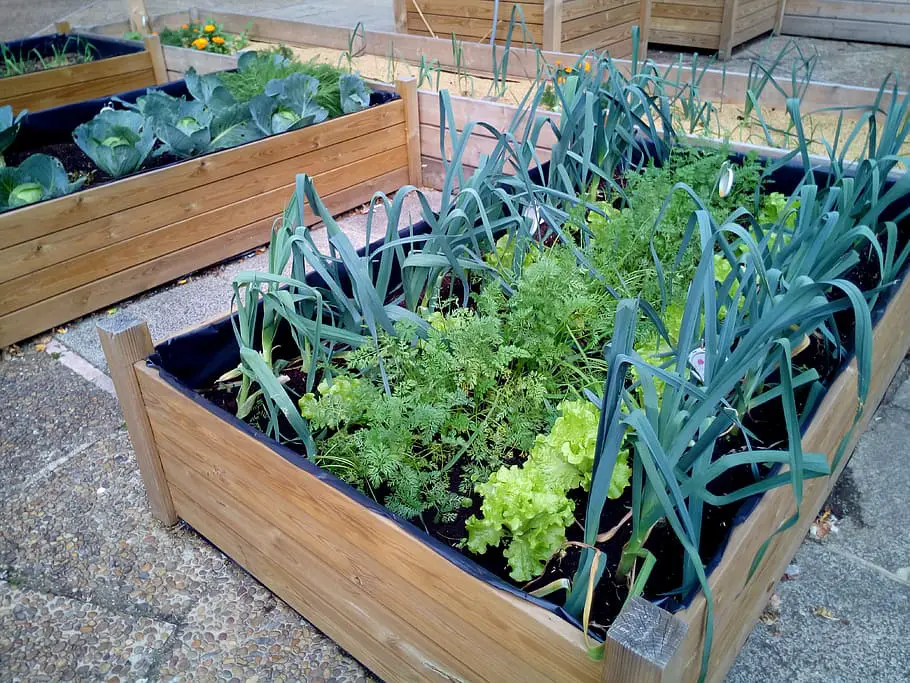
Looking forward, the landscape of urban gardening is set to grow not just in size but in sophistication.
As we peer into the future, it’s exciting to think about how innovations and advances could redefine the way we cultivate our urban environments.
Here’s a glimpse into what might lie ahead for urban gardening:
Technological Innovations
- Smart Gardening: Imagine gardens that are interconnected with IoT (Internet of Things) devices. Sensors could monitor plant health, soil moisture, and nutrient levels, automatically adjusting water and nutrient delivery based on the plants’ needs.
- Vertical and Rooftop Farming: As cities become denser, we’ll likely see an upward growth—literally. Vertical and rooftop gardens will take advantage of underused vertical and horizontal spaces, providing fresh produce closer to where people live and work.
- Hydroponics and Aquaponics Expansion: These soil-less technologies will become more mainstream as they become more user-friendly and integrated into home gardening systems. Expect these systems to be more compact, efficient, and connected.
Policy Evolution
- Green Mandates: Cities might start requiring new buildings to include green spaces, such as rooftop gardens or green walls, to help tackle urban heat and improve air quality.
- Community-Driven Planning: As the benefits of urban gardening become more apparent, public demand for more green spaces could lead to community-driven city planning where residents have a say in how their urban environments are designed.
Social and Environmental Impact
- Climate Resilience: Urban gardens can play a crucial role in making cities more resilient against climate change. By increasing green spaces, cities can reduce flood risk, lower temperatures during heat waves, and improve overall urban health.
- Biodiversity Boosts: Urban gardens can serve as critical habitats for urban wildlife, from pollinators like bees and butterflies to birds and beneficial insects, increasing urban biodiversity.
The future of urban gardening looks lush and promising, with technological innovations and policy support driving it towards becoming a fundamental part of urban life.
By embracing these changes, we can ensure that our cities remain vibrant and verdant for generations to come.
So let’s keep our garden gloves ready and watch as urban gardening continues to transform our world!
Role in Disaster Resilience
Let’s chat about a less-talked-about yet crucial benefit of urban gardening: its role in disaster resilience.
When storms hit or supply chains are disrupted, our beloved city gardens can be more than just a source of beauty. They can be lifelines.
Here’s how urban gardening fortifies our cities against crises:
Enhancing Food Security During Emergencies
- Local Food Supplies: Urban gardens can provide fresh produce even when supermarkets are short on supplies. In times of crisis, having multiple small-scale food sources spread across an urban area can make a significant difference in local food security.
- Reduced Dependence on Supply Chains: By growing food locally, cities can lessen their reliance on long and sometimes fragile supply chains. This local production ensures that communities have access to essential nutrients without the need for extensive transportation, especially critical during disruptions caused by natural disasters or economic turmoil.
Community Empowerment
- Skill Sharing and Knowledge: Urban gardening encourages the sharing of skills and knowledge about growing food, which can be invaluable in emergency situations. These skills foster self-sufficiency and resilience, empowering communities to take care of their own food needs.
- Social Cohesion: Gardening projects can strengthen community bonds, which are crucial in times of crisis. A strong community can respond more effectively to emergencies, from organizing local food distributions to providing mutual aid.
Infrastructure and Environmental Stability
- Green Infrastructure: Urban gardens can act as natural stormwater management systems, reducing runoff and decreasing the risk of flooding—a common issue during severe weather events.
- Climate Mitigation: On a larger scale, urban gardens help mitigate the urban heat island effect, which can exacerbate the impact of heatwaves on vulnerable populations during power outages or other infrastructure failures.
Urban gardening isn’t just about growing plants; it’s about cultivating resilience.
By integrating these green spaces into our urban planning, we not only beautify our cities but also prepare them to withstand and bounce back from the challenges that lie ahead.
Let’s keep sowing the seeds of resilience one garden at a time!
Educational Opportunities in Urban Gardening
Urban gardens are more than just patches of greenery in the concrete jungle. They’re vibrant classrooms where learning sprouts and grows.
From biology to sustainability, gardens offer hands-on educational experiences that can enrich our understanding of the world around us.
Let’s dig into how urban gardens serve as dynamic educational platforms.
Gardens as Interactive Learning Spaces
- Biology and Ecology: Gardens provide a hands-on way to study plant life cycles, pollination, and ecosystems right in the heart of the city. Observing the interactions between plants, insects, and other wildlife in urban gardens can bring textbook concepts to life.
- Environmental Science: Urban gardens are excellent for teaching about composting, water cycles, and renewable resources. Students and community members can learn about sustainable practices firsthand, such as water conservation techniques and the benefits of composting.
Curriculum Integration
- School Programs: Many schools integrate garden-based learning into their curriculum, using the garden as a setting for science experiments, art projects, and even math lessons. The practical application of measuring plant growth, for example, can make abstract mathematical concepts more tangible.
- Workshops and Community Classes: Urban gardens often host workshops and classes for the wider community, covering topics like organic gardening, seasonal planting, and pest management. These programs not only educate but also help to foster a sense of community among participants.
Skill Development and Career Readiness
- Practical Skills: Gardening helps develop practical skills such as planning, research, and problem-solving. Regular maintenance of a garden involves observing, hypothesizing, experimenting, and adapting—skills that are transferable to many careers.
- Green Jobs: Exposure to urban gardening can spark interest in agricultural sciences and environmental conservation, fields that are crucial as we face global challenges like climate change. Urban gardens can be stepping stones to careers in these vital industries.
Urban gardens transform everyday spaces into rich educational grounds where people of all ages can grow their knowledge and skills.
By nurturing these living classrooms, we cultivate a deeper connection to our environment and each other.
Let’s keep planting the seeds of education in every garden!
Therapeutic Benefits of Urban Gardening
Did you know that digging in the dirt isn’t just good for your plants, but also for your soul?
Urban gardening offers a wealth of therapeutic benefits that can enhance mental health and overall well-being.
Let’s explore the calming and restorative powers of tending to a garden in the hustle and bustle of city life.
Stress Reduction and Mental Clarity
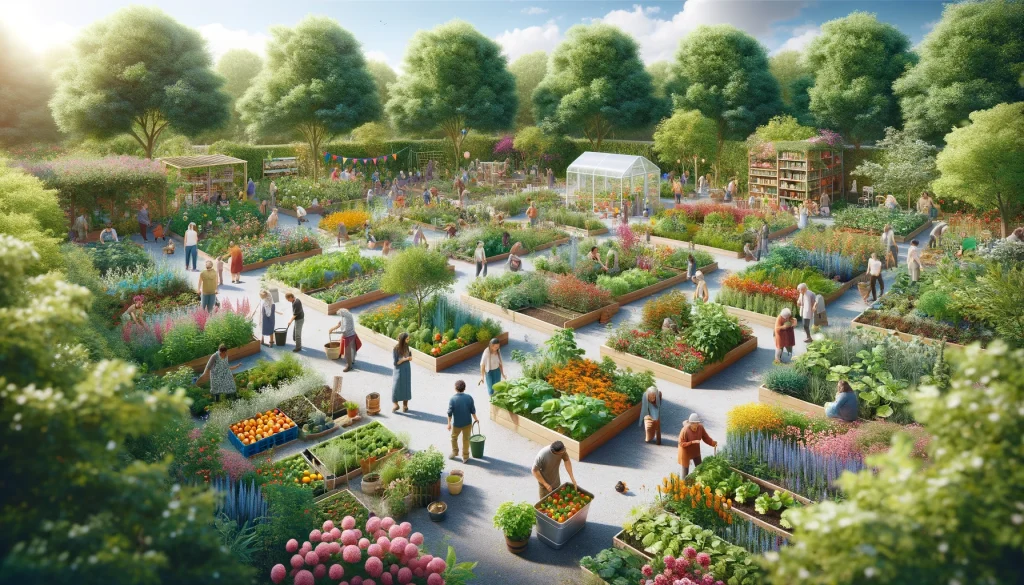
- Nature’s Calm: Engaging with nature through gardening has been shown to reduce stress, anxiety, and depression. The simple acts of planting, weeding, and watering can serve as mindful practices that help clear the mind and lower stress levels.
- Sunshine and Fresh Air: Spending time outdoors in your garden can increase your exposure to vitamin D and fresh air, both of which are beneficial for boosting mood and overall health.
Emotional and Psychological Healing
- Sense of Accomplishment: Watching your garden grow from seeds to full bloom provides a tangible sense of achievement. This can be particularly empowering for individuals recovering from illness or dealing with mental health challenges.
- Therapeutic Horticulture: Some community gardens are designed specifically for therapeutic purposes, helping to rehabilitate individuals through structured gardening activities. These programs often support people with disabilities, the elderly, or those undergoing mental health treatments.
Social Interaction and Community Connection
- Building Bonds: Urban gardening can create unique social opportunities, bringing together diverse groups of people. Community gardens are particularly effective at fostering social interaction, which is essential for mental well-being.
- Inclusive Spaces: Gardens can be inclusive spaces that welcome individuals from all walks of life, providing a communal area for connection and support.
Urban gardening isn’t just about beautifying our surroundings. It’s a potent therapeutic tool that nurtures our communities and ourselves.
Whether it’s the tranquility of working with your plants or the joy of harvesting your own food, the mental health benefits of gardening are as abundant as the crops we cultivate.
Let’s keep our gardens growing and our spirits high!
Urban Gardening Benefits FAQs
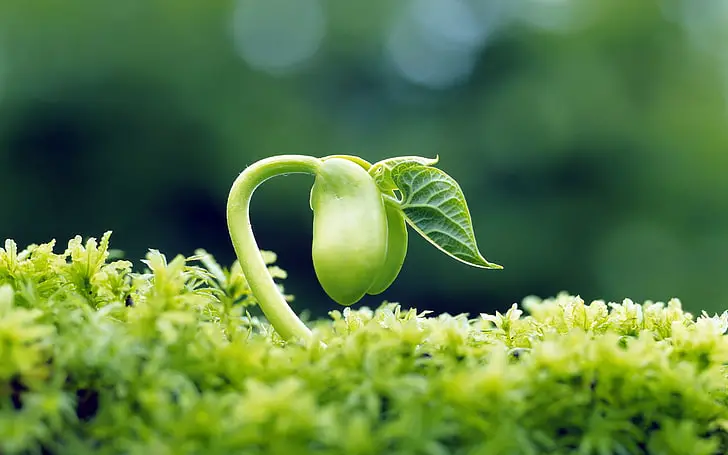
Howdy, city slickers and budding gardeners! Got questions about urban gardening? Well, you’re in luck!
Today, we’re diving into some frequently asked questions about the green practice of urban gardening.
Whether you’ve got a sprawling rooftop or just a sunny windowsill, there’s a way for everyone to get involved. So, let’s break it down Q&A style to get you growing!
Q: What is urban gardening?
A: Urban gardening is the practice of cultivating plants in an urban environment. This can include growing herbs, vegetables, and flowers in places like balconies, rooftops, and even along sidewalks. It’s a powerful way to bring nature into the city, enhancing the quality of our urban environments and our daily lives.
Q: How does urban gardening contribute to food security?
A: By producing food locally, urban gardens reduce reliance on long-distance food supply chains. This local production ensures fresh, nutritious produce is available right where people live, helping to sustain communities during supply disruptions or economic challenges.
Q: What are some sustainable practices in urban gardening?
A: Urban gardeners often use sustainable techniques like composting organic waste, which enriches the soil naturally, and practicing water conservation through methods like rainwater harvesting or drip irrigation.
Q: Can urban gardening really help during crises like food shortages?
A: Absolutely! Urban gardens can provide essential food supplies during emergencies. They offer immediate access to fresh produce, reducing dependence on external sources that might be disrupted during crises.
Q: What are the economic benefits of urban gardening?
A: Urban gardening can significantly reduce grocery bills by allowing people to grow their own food. It also offers potential income opportunities through selling surplus produce or starting garden-related businesses.
Q: What are some benefits to urban gardening?
A: Urban gardening improves air quality, reduces urban heat, and enhances biodiversity in cities. It also promotes mental well-being and fosters community interaction.
Q: What are two benefits of putting an urban garden in a vacant lot?
A: Transforming vacant lots into urban gardens can revitalize neglected areas, increasing property values and reducing crime. It also provides community gathering spaces, promoting social cohesion.
Q: How can urban farming benefit people in cities?
A: Urban farming provides city dwellers with fresh, affordable produce, promotes healthy eating, and can improve individual and community well-being by creating green spaces and fostering social interactions.
Q: How effective is urban agriculture?
A: Urban agriculture is highly effective in making use of underutilized urban spaces to produce food, decrease urban heat islands, and enhance urban biodiversity, contributing significantly to sustainable urban development.
Q: What are 3 benefits of urban farming?
A: Urban farming can 1) increase access to fresh foods, 2) reduce environmental impact by lowering the need for transport, and 3) create educational and employment opportunities within urban communities.
Q: How does urban farming help the poor?
A: Urban farming helps the poor by providing access to nutritious food without the cost of purchase, offering a means to earn income, and empowering communities through skills development and increased food security.
With these answers, I hope you’re feeling ready to roll up your sleeves and start growing!
Urban gardening isn’t just a trend. It’s a transformative movement towards a greener, more sustainable urban future. Happy gardening, and remember to keep it green!
Wrapping Up Urban Gardening Benefits
As we wrap up our exploration of urban gardening, it’s clear that this green endeavor is much more than just a hobby. It’s a powerful tool for improving our cities, our environments, and our lives.
Whether you’ve got a sprawling rooftop or a modest balcony, there’s a spot in every urban landscape for a garden.
Let’s recap the incredible benefits of urban gardening and encourage each other to dig in and make our urban spaces greener and more vibrant.
Key Takeaways
- Fresh, Local Produce: Grow your own food and reduce reliance on complex supply chains.
- Environmental Impact: Contribute positively by reducing carbon footprints and enhancing urban air quality.
- Social Well-being: Create and strengthen community bonds through shared green spaces.
- Economic Opportunities: Save on grocery bills and explore potential revenue from selling surplus produce.
- Educational Value: Learn and teach valuable skills ranging from biology to sustainability.
- Therapeutic Benefits: Enjoy the mental health benefits of connecting with nature and nurturing growth.
Empowering Communities and Enriching Lives
Urban gardening goes beyond beautifying spaces. It builds stronger communities, enhances food security, and contributes to economic stability.
By gardening, we’re planting seeds for a sustainable future, fostering connections with our neighbors, and cultivating a deeper respect for nature.
As we look to the future, let’s continue to support and participate in urban gardening initiatives.
Every plant grown contributes to a healthier, more sustainable urban environment. So, whether you’re starting a small container garden or getting involved in a community plot, your efforts are crucial to greening our world.
Remember, it’s not just about growing plants. It’s about growing our communities and ourselves.
Read more: 6 Benefits of Gardening: Gardening’s Big Payoffs
Happy gardening, y’all! Let’s keep our spirits high and our gardens lush. Together, we can transform our urban landscapes one plant at a time. Keep it green!
Resource Section for Urban Gardening Benefits
To further explore the world of urban gardening and understand its multifaceted benefits, here are some authoritative resources that can provide deeper insights and empirical support:
General Urban Gardening
- American Community Gardening Association (ACGA): Provides resources for starting and maintaining community gardens across the U.S. and advocates for the community gardening movement. American Community Gardening Association
- National Gardening Association: Offers planting guides, educational resources, and research on gardening practices. National Gardening Association
- United States Department of Agriculture (USDA) – Urban Agriculture Toolkit: A comprehensive guide to urban agriculture, covering business planning, product marketing, community engagement, and more. USDA Urban Agriculture Toolkit
Therapeutic Benefits of Urban Gardening
- “Gardening is Beneficial for Health: A Meta-Analysis”: This scholarly article provides a systematic review of the health outcomes associated with gardening, including reductions in depression, anxiety, and body mass index. PubMed
- “Therapeutic Benefits of Horticulture in a Mental Health Service”: A study published in the British Journal of Occupational Therapy showing how gardening activities helped improve well-being among patients with mental health conditions. SAGE Journals
- “Green Cities: Good Health”: An urban forestry and urban greening research site from the University of Washington that discusses the psycho-social benefits of urban green spaces. University of Washington
Sustainable Practices and Technology in Urban Gardening
- “Urban Agriculture and Sustainable Cities”: A research article that explores how urban agriculture contributes to food security, energy conservation, and waste reduction. ScienceDirect
- “Smart Technology in Urban Green Spaces”: Discusses the integration of smart technologies like IoT in managing urban gardens for efficiency and sustainability. ResearchGate
These resources offer a wealth of information that can help both novice and experienced gardeners understand the broader impacts of urban gardening and implement best practices in their gardening endeavors.
Whether you’re interested in the therapeutic aspects, sustainability, or general gardening tips, these resources provide valuable insights and data-backed evidence to support your gardening journey.
Visit my Amazon Influencer Page for videos and gardening products Grow Your Own Garden





